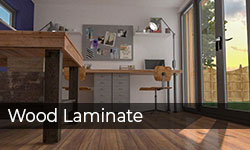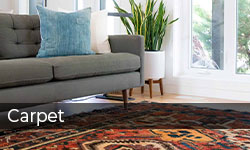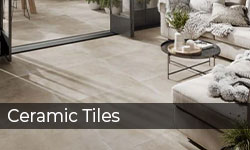
Carpet
Carpet
Like any room in your house, you have the option of specifying carpet in your garden office. Carpet softens a room in ways that other finishes can’t. All types of carpet flooring are possible in a garden office, but we commonly see natural options such as sisal and jute being used.
For a good finish carpets really need to be fitted by a professional who has the tools to stretch the carpet, so you get a good tight finish.
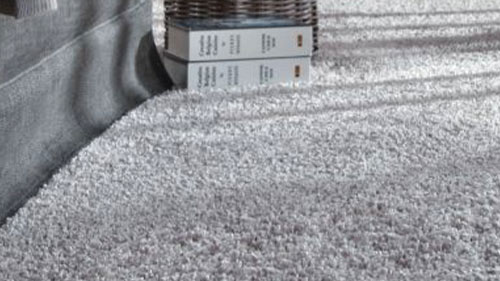
Benefits of Having a Carpet In Your Garden Room
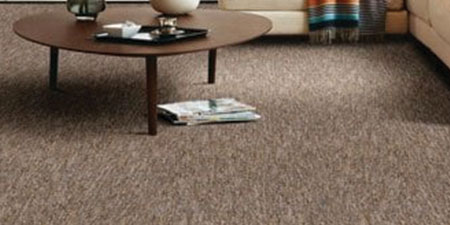
Style
Despite hard surfaces, such as hardwood, taking up many pages of interior design magazines over recent years, carpet has a style all its own. From luxurious and elegant to casual and comfy, carpet can give a space an entirely different feel, just by changing the style of carpet. Consider a short-pile, patterned carpet for a formal room or a long frieze for a more casual space.
Comfort
Have you ever noticed that after a period of time spent standing or walking on ceramic tiles or concrete, your body is sore and achy? Hard surfaces are just that: hard. They offer no flexibility underfoot, so they lack the ability to act as shock absorbers for your footsteps. So what does this mean? Basically, it means that as you walk across a hard surface floor, your body gets a bit of a jolt each time you take a step because your body rather than the floor absorbs the force of your impact.
In addition to feeling nice to walk, sit and lay on, carpet provides shock absorption thanks to its flexibility and cushioning. This effect is increased dramatically if there is under pad beneath the carpet. So, not only is carpet more comfortable to the touch, but it is also easier on the body when standing or walking on it over a long period of time.
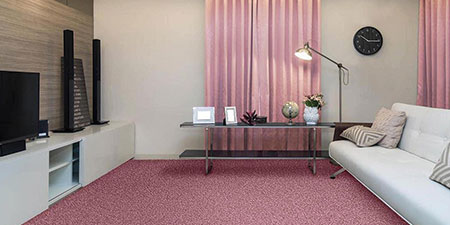
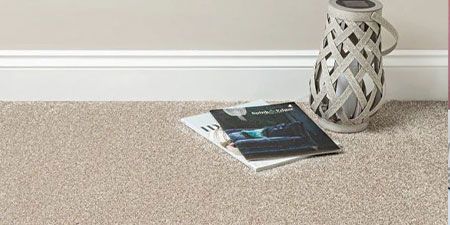
Warmth
Carpet provides excellent insulation value to a space, much more than hard surface flooring materials. In a study conducted by the Georgia Institute of Technology School of Textile Engineering, results indicated that a thicker carpet provides a higher insulation factor (“R-value”) regardless of the fibre type of the carpet. Also, under pad has its own R-value, and the use of under pad in conjunction with carpet combines the R-value of each material, giving greater overall insulation.
Reducing heat loss means that carpet can help you save on the costs associated with heating a garden room, such as electricity or natural gas. For regions that experience cold winters, this could amount to big cost savings every year.
Health
There has been a long-running debate about whether carpet aggravates or alleviates health problems such as asthma and allergies. For years, people with such respiratory concerns were advised to rip up all of the carpets in their garden rooms and replace it with hard surface flooring. However, numerous studies over recent years have consistently shown that carpet is actually more beneficial than hard surface floors for those with breathing difficulty.
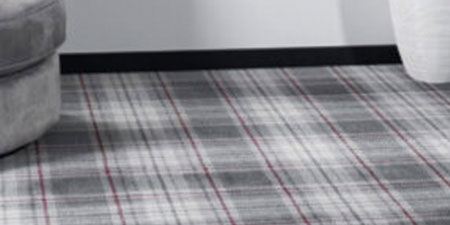
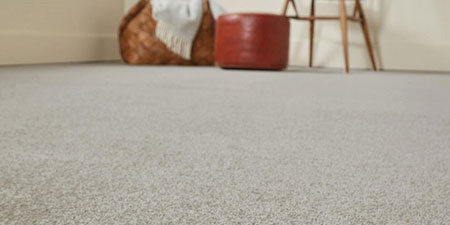
Quiet
Sound carries much further when there is no carpet in the space. You’ve probably, at some point, been in a room that is bare of carpet and noticed that sound tended to bounce off the walls and create an echo in the room. This is because hard surfaces can’t absorb sound the way that soft surfaces – such as carpet – can. Carpet contributes to a much quieter space.
Safety
It goes without saying that hard surfaces can be slippery, and they’re not much fun to land on when slips and falls do happen. Carpet not only provides a soft landing surface – which can be especially helpful in baby’s rooms – it also helps to prevent some falls in the first place, particularly on stairs. Hardwood stairs present a safety concern, especially when there are very young or elderly residents in the garden room or occupants with mobility issues. Properly selected carpet increases safety by preventing many slips and falls. Carpet for stairs should ideally be in the 50- to 60-ounce range to provide durability without being too thick.
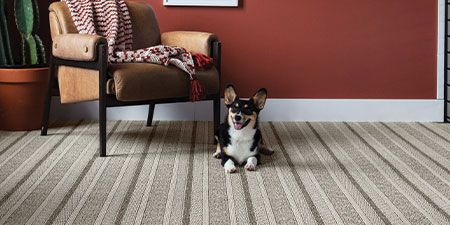
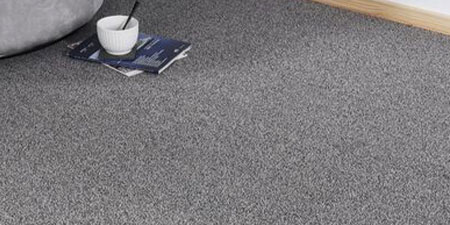
Cost
All products have a range of qualities and price points. Therefore, there is no particular floor covering type that is guaranteed to always be more or less expensive than another. However, in general terms, carpet often costs much less than hard surface floors.
Many hard surface flooring products, such as solid hardwood and vinyl floor, require special preparation before they can be installed. Specific sub-floor requirements must be met, or existing flooring must be coated before installation can occur. Carpet typically eliminates these concerns, as it can be installed over a variety of sub-floors, with far less stringent requirements. This saves a great deal of cost.
Additionally, carpet itself can be less expensive than other materials such as hardwood. So, while of course there are exceptions to every rule, carpet is generally more cost-effective than hard surface flooring.
With their small size, carpet tiles are considerably easier to lift, move and install when compared to wall to wall carpets. That’s one of the main benefits of carpet tiles vs. other types of carpets.
Carpet tiles also typically result in considerably less waste during installation as much less cutting is needed, particularly in rooms with many nooks and odd angles. Some manufacturers also offer very lightweight carpet tiles that make life even easier for carpet installers.
It’s for these reasons that carpet tiles offer considerable cost and time savings over wall-to-wall carpet – making carpet tiles an ideal choice for projects on a tight budget or tight timeline.
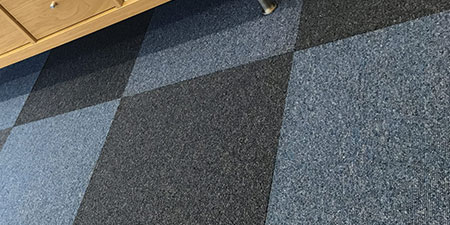
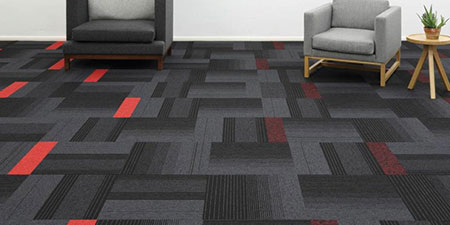
With their small size, carpet tiles are considerably easier to lift, move and install when compared to wall to wall carpets. That’s one of the main benefits of carpet tiles vs. other types of carpets.
Carpet tiles also typically result in considerably less waste during installation as much less cutting is needed, particularly in rooms with many nooks and odd angles. Some manufacturers also offer very lightweight carpet tiles that make life even easier for carpet installers.
It’s for these reasons that carpet tiles offer considerable cost and time savings over wall-to-wall carpet – making carpet tiles an ideal choice for projects on a tight budget or tight timeline.
Carpet tiles aren’t only easy to install, but also easy to remove. Should wear and damage occur, the carpet tiles can readily be replaced individually rather than replacing an entire floor.
Wall-to-wall carpets can be spot-repaired as well, but the process is often significantly more complicated than it’s the case with carpet tiles, both in terms of ordering a matching segment of carpet and in terms of fitting expertise required.
Another maintenance advantage of carpet tiles is that the squares can be easily lifted if access is needed to the substrate floor beneath. This means technicians are able to gain access to underfloor cables when needed, a considerable advantage in spaces that are constantly subject to change, such as conference halls and agile workplaces.
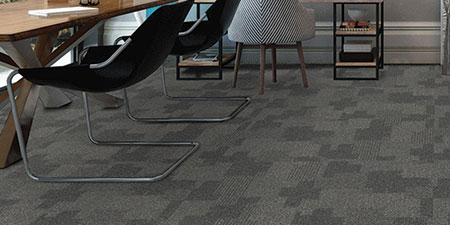
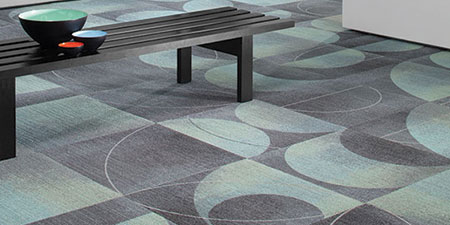
In some ways, carpet tiles offer greater design flexibility than wall-to-wall carpets. With new dye technologies, it’s possible to create a wide range of colours and patterns on carpet tiles that aren’t possible on wall-to-wall carpets. By applying dye after the carpet is cut into modular carpet squares, it’s possible to achieve perfect design registration across all edges of each tile, so a design flows almost seamlessly from tile to tile.
Like wall-to-wall, carpet squares can be custom coloured or applied with a custom design to create unique environments only limited by the designer’s imagination. For unique or complicated custom designs, wall-to-wall is still likely to be your best option, but with the emerging technologies, carpet tiles no longer necessarily mean a boxy look or a clean solid colour.






